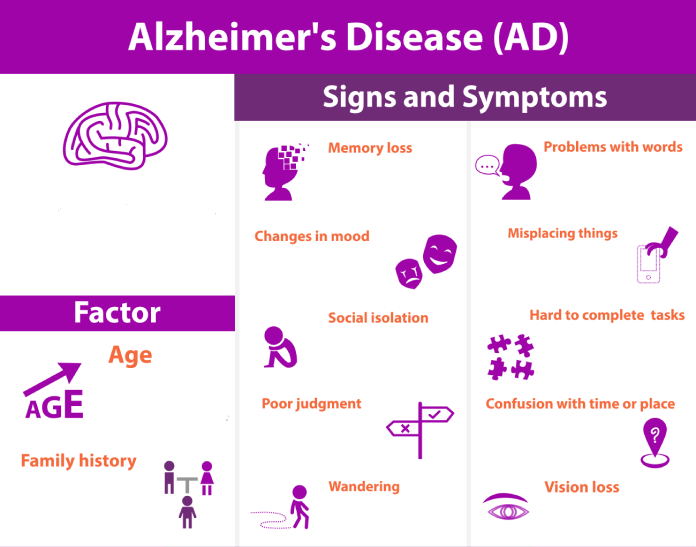
Early on, Alzheimer's disease causes the same symptoms as classic Alzheimer's. Technically, anyone who has been diagnosed with Alzheimer's in a person younger than 65 is classified as early-stage Alzheimer's. Early-stage Alzheimer's disease usually occurs in middle-aged people, but it can also occur in older people.
Alzheimer's disease can progress very slowly. It usually starts with mild problems and gradually progresses from there. People with early stages of Alzheimer's may start to exhibit some memory and other cognitive problems. This is because it is so early in Alzheimer's disease that there may not yet be actual brain damage.
If you think you may have Alzheimer's disease early on, then the first thing you should do is consult your doctor. This is especially true if you already have another type of dementia, depression, or stress, such as PTSD or bipolar disorder. Your doctor can rule out early-onset Alzheimer's by testing.
Some signs that you may have Alzheimer's at this stage include: difficulty concentrating, inability to remember things, and very few memories. These are all indicators of dementia, but they can also be signs of Alzheimer's itself. You may notice that you cannot remember events that happened long before you were diagnosed with Alzheimer's. Many people with this form of dementia do not recognize their names and only recognize familiar faces.
When someone reaches this stage of Alzheimer's progression, it is best to start taking medication. Medication can help slow the progression of your disease and even stop it completely, which can be especially beneficial for people with mild Alzheimer's disease.
When looking at people with advanced Alzheimer's disease, it is important to track the early and late onset of symptoms. You should also ask their family members or friends if they are willing to discuss their symptoms with you. You can get information about the early and late symptoms of Alzheimer's by contacting your healthcare professional. If you are diagnosed with early stages of Alzheimer's disease, you may be advised to take medications to help manage the progression of your symptoms.
For people who already have mild symptoms, you may find that medications don't get rid of them as much as you hoped. You may need more time to work. Taking medication in combination with other treatments, such as counseling, can significantly affect your symptoms.
For those with early Alzheimer's, you should also consider seeing your doctor to see if there are any other underlying causes of your Alzheimer's that you are not aware of. Sometimes you may find that the cause of your symptoms is more serious. This will help your doctor better understand if you need medications, should you switch to another type of medication, or if you should see a psychiatrist.
Another way to learn more about your symptoms and how to deal with them, especially if you have Alzheimer's, is with group therapy. With the right group therapy program, you can learn how to manage your symptoms and learn what you need to do to be happy and stay that way. Group therapy can teach you how to plan activities that you enjoy and that will help you stay active and learn.
You can also find information about early and late symptoms of Alzheimer's on the Internet. You can use many resources, including sites dedicated to patients with advanced Alzheimer's disease. or those who are just starting to notice the early stages.
If you feel you are at risk for Alzheimer's, you should definitely see a doctor or specialist for a diagnosis. The sooner you start treatment, the better it will be
Early on, you can start learning how to take care of yourself and how to deal with the progression of symptoms. The sooner you are diagnosed, the more likely you are to beat Alzheimer's. You should always remember that it is important to communicate your symptoms to others at an early stage and to share this information with your loved ones.